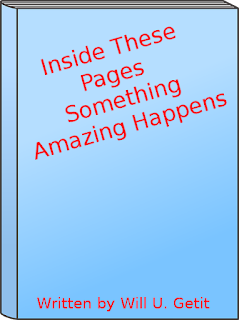Students had to write about what happened in the book they are reading. The assignment was to describe what they read last night in as much detail as possible.
Hallie set a standard of excellence:
The book I read last night is
The Chronicles Of Narnia. I'm currently reading the 3rd book in the
series, The Horse And His Boy. Shasta's adoptive father wants to sell
Shasta into slavery. Shasta went outside the night before he was
being sold and was petting the horse. He wished the horse could talk.
And the horse talked. The horse said it was from Narnia and that he
was going to run back to Narnia one day. The horse invited Shasta to
come with him on his quest to Narnia. Shasta asked the horse's name,
but he couldn't pronounce the horse's name. So he and the horse
agreed on the name Bree. Shasta hopped on Bree and they were off to
Narnia.
On the first day of riding they heard a lion roar. Bree ran faster, but the lion roar sounded again. Shasta saw another horse following close behind them. The lion roar sounded again. Bree went right while the other horse and rider went left. Bree and Shasta found a place to rest for the night when the other horse and rider showed up. The horse said it's name was Whin. They are both on their way to Narnia, like Bree and Shasta. The group has to walk through the desert for many days. While the group was is a town, Shasta gets pulled away by royal guards who think he's the missing prince. While Shasta is in the castle he hears a bunch of important war related stuff and how another town is planning to take down Narnia. When Shasta goes into his bedroom for the night the real prince hops in Shasta's room through the window.
The prince and Shasta switch places and Shasta sneaks out the window to get back to Bree. He finds his way to the point they were headed to next. he finds them. He tells them about the war and how they have to warn the kings and queens of Narnia. They take off very quickly. They have to beat the town trying to take down Narnia. On the way Whin and his rider get attacked by a lion. Shasta shouts a the lion and it goes away. Whin and Bree are too hurt to keep walking so they stay with Whin's rider in with a man on the way to the castle of Narnia. The man tells Shasta that he has to run in order to get there before the town does. He tells the kings and queens of Narnia about to town.













































